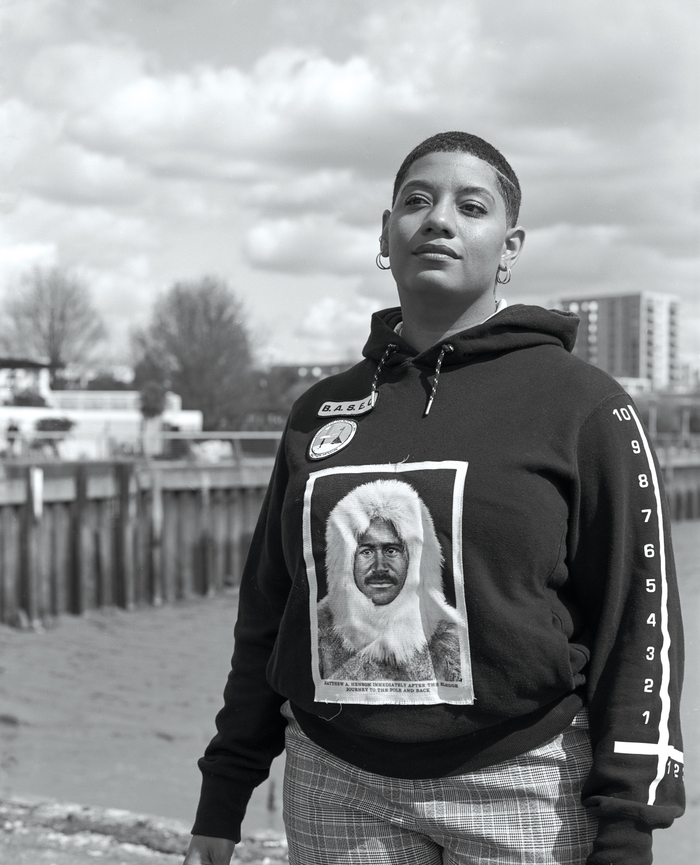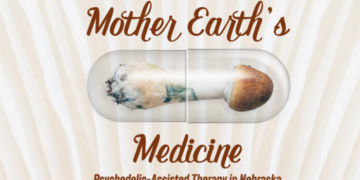Artist Liz Gre found moving to London has meant asking a lot of questions, doing a lot of work, and taking a lot of risks. Through a cycle of lockdowns and lifts, she has felt a slow-moving appreciation of the newness.
“A lot of people expect to jump in and get lost every day,” Gre said. “I’m moving to Europe, expecting to be in Paris one weekend, Italy the next. Instead, my everyday adventure is figuring out what it’s like to go to the convenience store, the local coffeeshop, local parks.”
Her biggest adventures have been through the work she has made. When she moved across the pond in February 2020, she didn’t expect to have shows at the Tate [Gallery] and the Marian Goodman Gallery, or to connect with people from all over the world through virtual performances.
“Work is the spark.”
Gre is pursuing a doctoral degree in composition at City, University of London. Drawing on her background in sociology from Creighton University, Gre uses ethnographic research as a compositional style. She sees herself as ethnographer and artist, researcher and composer.
The child of a pastor, Gre started singing in church choir at age 3. She brings the transformative power of spiritual music to her compositions, remembering the feeling of being transported to another world by the musical cadence of the ministers, and the improvisational style of Black church services.
That love of improvisation brought her to jazz. Gre saw Omaha’s jazz club The Jewell as a place of refuge holding her down during a very exploratory time in her musical life.
Mitch Towne, keyboardist and longtime staple of the Omaha music scene, collaborated with Gre in the past. “Every time I played with Liz was exciting because we would let the energy take us somewhere different every time. She brings such a strong vibe and presence to the stage.”
In 2018, Gre finished her master’s degree in arts and culture management at St. Mary’s University in Minneapolis with hopes to turn towards the arts professionally. When she returned to Omaha, she thought she would focus on arts administration and do some singing around town. But she felt a burning desire to go deeper into her own practice.
“When I applied for the fellowship [at the Union for Contemporary Art], I wrote that I wanted to be a full-time artist within two years. A year to the day after finishing that fellowship, I moved to London to pursue art full time as an academic. It wasn’t even on my original timeline,” she said with a laugh.
“Someone told me once you start living in your purpose, you literally can’t stop,” Gre said. “That is exactly what has happened. [I] started peeling away what I was supposed to do, and I bet on myself.”
At one point, working in fundraising and development was her dream job. The fellowship challenged her to use research to drive creation and to encourage people to engage critically with her art.
“When I entered that fellowship, the idea of exploring a global lineage through music was not something I thought attainable for me,” Gre said. “I came to that idea because I wanted to explore my own lineage, and speak with my family members about their lives, and make music about my family. I realized I wanted to take on a more universal approach.”
During the summer of her fellowship year, Gre performed at Omaha Under the Radar, a local presenter of experimental performance and workshops. Gre considered this a full-circle moment.
When Kate Soper performed at OUTR 2018, it was the first time she saw a woman onstage as a featured composer. “I don’t know what got into me, but I stood up and asked how someone gets started composing if they have a background in music but no conservatory experience,” she said. “A year later, not only had I gotten started, but I was performing. To go from asking the question to performing [at OUTR] a year later speaks to the encouragement of organizers like Amanda [DeBoer Bartlett, director].”
The culmination of her UCA fellowship was “Whispered Like the Wind,” an experimental composition performed in collaboration with the Omaha Symphony at Holy Family Church in December 2019. It was her first experiment uniting ethnography and music.
“Whispered” was made through collaboration with Black women of all ages, contemplating their life histories in North Omaha. These conversations were an essential part of the music-making process. One of the pieces in that work was an arrangement of the spiritual “Glory, Glory,” an interpretation of their spiritual experiences.
In March 2020, she drew from “Glory, Glory” in her contribution to the Time Now for Ghosts exhibit at the Center for Afrofuturist Studies in Iowa City. Reflecting on that piece led to the creation of “The Future Smells Like Mo’dear’s House” composition. Gre’s aunts, uncles, and cousins called their grandmother Mo’dear as a combination of Mother and Dear. Gre was the youngest grandchild and grew up in the Midwest, while most of her family was in the South. None of her friends called their grandparents Mo’dear, so she called her Grandma. The piece was written as an ode to her family’s view of Mo’dear.
She wanted to depict the past, present, and future in the same place, evoking the senses: mothballs, warmth, the humidity of the deep South, the scents of dryer sheets and potpourri. She overlaid these images with elements of the imaginary, “thinking about our past as Black people.”
Around the time this piece was created, everything changed.
“When the pandemic [started], in lockstep with state-sanctioned violence of Black bodies, making music the way that I knew how was a very tall ask,” she said.
It was at that time she started doing experiments with graphic notation. In the same way a painter stares at a blank canvas and paints how they feel, she started to interpret her own scores intuitively. The process opened up a creative door.
Gre continues to feed the musical spark with many upcoming works. She was recently commissioned to write a piece for the Washington National Opera, as well as a composition for a short film celebrating women in activism. She currently resides in London with her wife, artist Alexandria Smith.
Visit lizgre.com for more information.
This article originally appeared in the May issue of Omaha Magazine. To receive the magazine, click here to subscribe.














